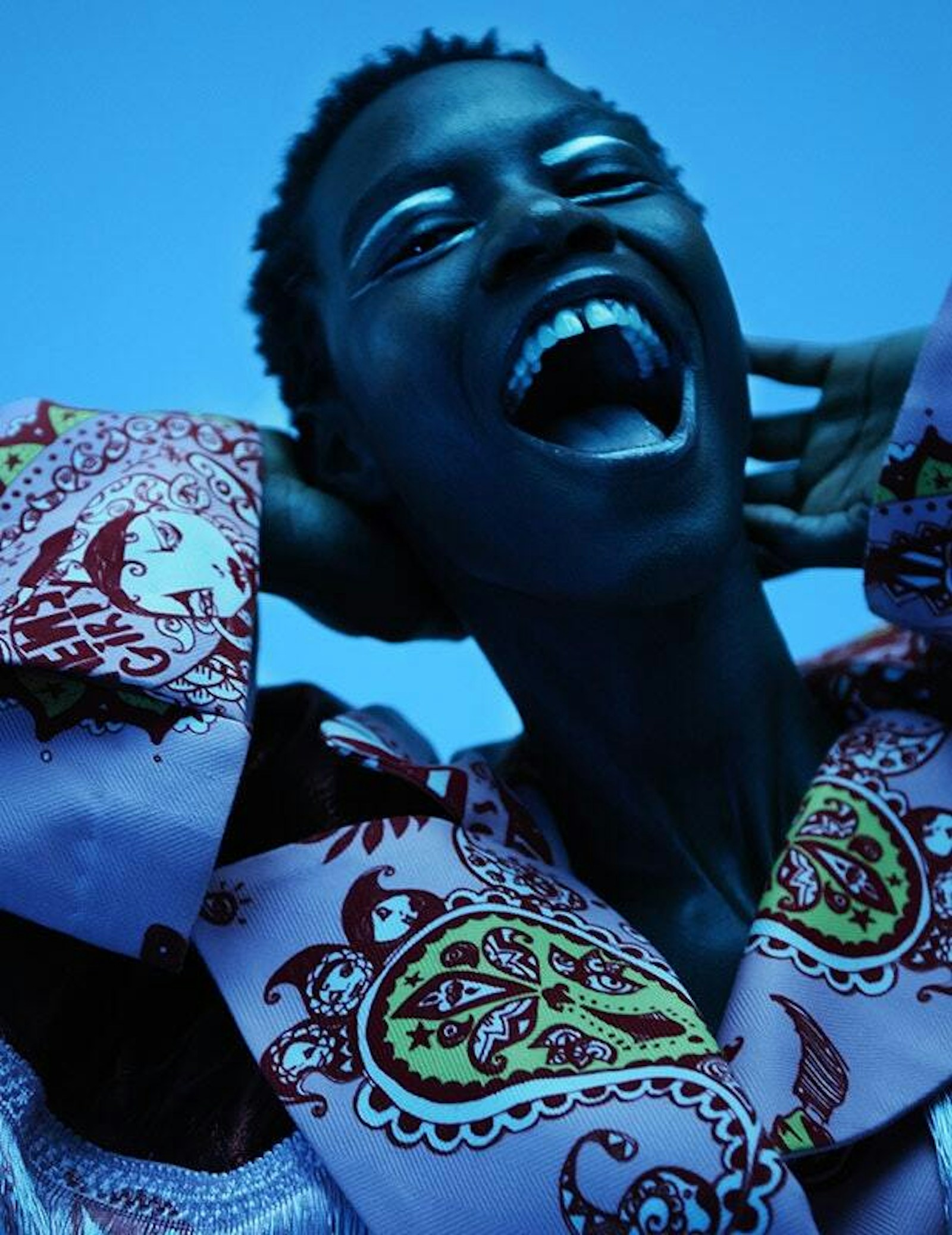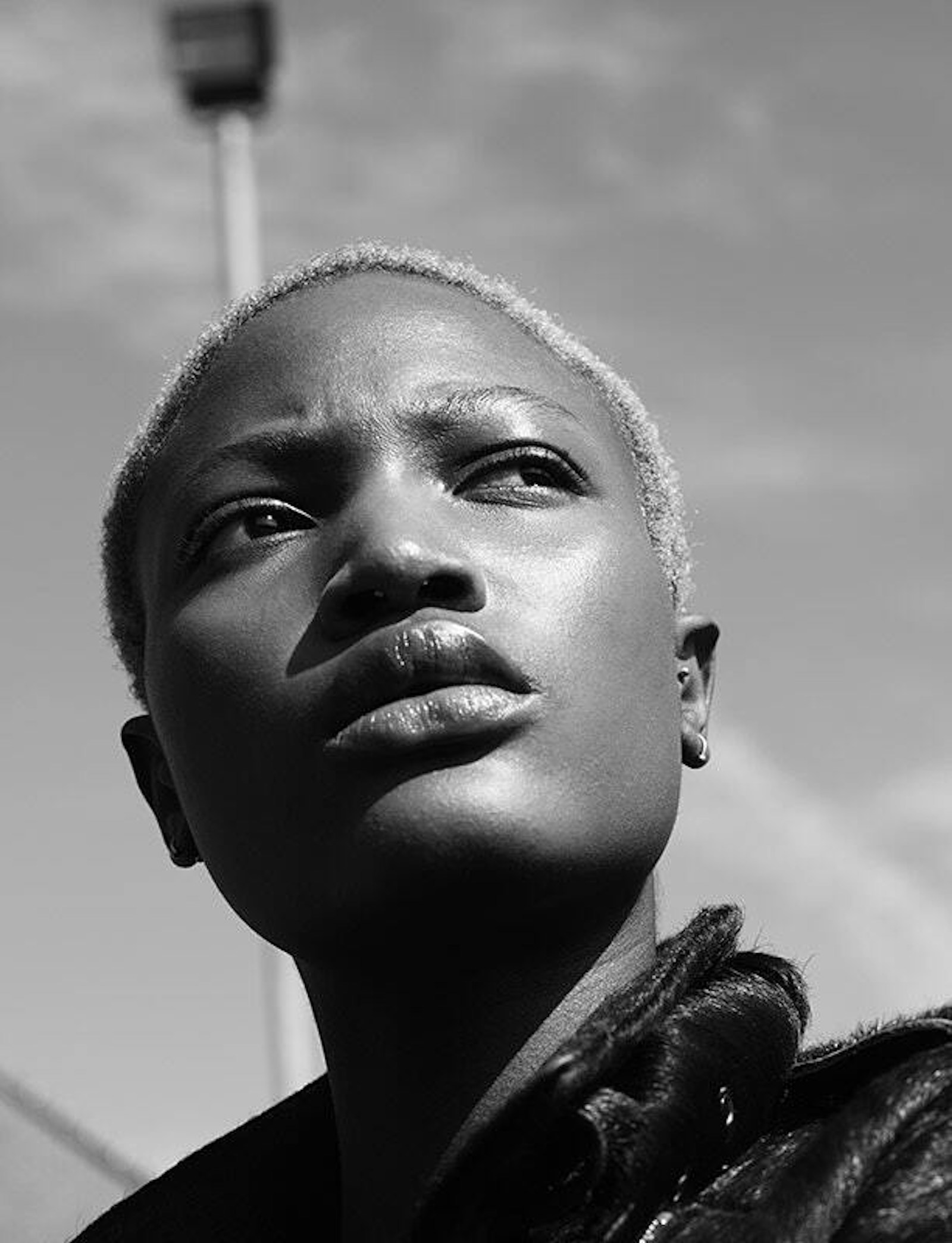Photographer and filmmaker Derrick Kakembo explains why being multidisciplinary is the way forward
For filmmaker, photographer and Reform The Funk founder Derrick Kakembo, flexing his creative muscles across multiple disciplines is the best way to make sure his ideas reach their full potential. He’s recently had to juggle directing a music video for singer Shingai whilst working on a commission for the V&A and Museum of Colour. Investing time into personal projects is important to Derrick and spurs his creative drive, which he then hones into his photography and filmmaking. We chat to him about finding balance and how he’s creating a distinct, but necessary platform for underrepresented voices.

Job Title
Photographer, Filmmaker; Founder and Head of Content at Reform The Funk
Based
London
Previous Employment
Rankin, Hunger Magazine (February 2015-July 2018)
Clients: Ogilvy, V&A, Island Records, Museum of Colour
Education
Art and Design Foundation (2008-2009)
BA Graphics Design and Photography, De Montfort University (2009-2012)
Website
kakembo.co.uk
reformthefunk.com
Social Media
Day-to-Day
How would you describe what you do?
I’m a photographer, filmmaker and head of content at Reform The Funk. My work ranges from working on fashion editorials to taking portraits and responding to client briefs. As the head of content at Reform The Funk, I’m in charge of the creative direction and production of the content featured on the platform. My work can range from working with art directors, stylists, photographers and filmmakers to commissioning writers and creating engaging stories and narratives
How did Reform the Funk come about and what is the mission behind it?
It’s an independent cultural platform and content brand that I created in 2016 as I wanted to create an inspirational platform that represents culture in its truest respect. For a long time, I’ve had a desire to document and curate cultural narratives from an organic and honest perspective that eliminates a gaze or appropriation.
Reform the Funk aims to challenge the current status quo by giving a voice to the underrepresented. We do this by both promoting and producing thought-provoking and emotive art. We feature the truest cultural tastemakers and aim to do so while enlightening and inspiring our audience through the work. We also respond to client briefs and have worked with brands such as the V&A, Museum of Colour, Island Records and Hunger.
Can you tell us a bit about your personal work?
In my personal work as an image maker, I’m fascinated in exploring the complexity and beauty of blackness as a subject matter. My filmmaking practice is often an extension of this exploration into the unique experience of blackness.
“It’s important to let people know what you have been working on. It shows that you keep growing and are always ready to be hired.”


What tools do you use?
I often shoot on a Nikon SLR. I use Capture One for processing files on set and Photoshop for editing.
What has been the most exciting project of the last twelve months?
I directed a short music film with British songstress, Shingai (formally in The Noisettes) for her debut solo project Ancient Futures [below]. It’s a visual exploration of some of the different meanings and themes featured in the EP.
Can you tell us more about working in a multidisciplinary way?
I’ve always loved working in a multidisciplinary way as it allows me to explore ideas across different platforms and formats. I experimented with different types of practices during my art foundation. Going on to study graphic design and photography at university helped me develop an open-minded approach to my creative process. Economically, it allows you to adapt your various skills to different project briefs.
Do you ever feel overwhelmed by juggling so many different things? If so, how do you find balance?
I definitely get overwhelmed by taking on too much. I’m constantly trying to learn how to balance working towards multiple deadlines while scheduling meet-ups and developing new opportunities to grow.
Taking time off is just as important as working. It allows you to refocus, recharge and find a moment to seek new inspiration. These days I prioritise things I enjoy that are non-creative related, like playing football on Sundays with some of the friends I grew up with from my local neighbourhood. It’s really good for your mental wellbeing to have non-creative hobbies and activities outside of those related to your career.
Do you feel young creatives are increasingly expected to work in a multidisciplinary way?
Yes, definitely. At the moment everyone is more open-minded about being multi-disciplinary. I’m a strong champion for it: I think it creates a more positive mindset and way of working. We have ideas and concepts that sometimes need to be explored across different formats. It also encourages young creatives to gain an understanding of different disciplines.



How I Got Here
How much of an impact do you feel your upbringing and family had on your choice of career?
My background and upbringing inspires my work massively. My mum has always been a creative at heart although she never pursued it as a career. My earliest creative memories were of her knitting and making these beautiful decorative fabric pieces that she used to hang up on the chairs and tables. I grew up with three sisters, so from an early age I developed a desire to feature black woman as a muse in my work.
How useful have your studies been for your work?
I don’t think it’s important to have specific education for this line of work. However, I am an advocate for studying if you can in whatever capacity. University was a good process for my development. I learned how to research, write and articulate ideas.
“Taking time off is just as important as working. It allows you to refocus, recharge and find a moment to seek new inspiration.”
“I grew up with three sisters, so from an early age I developed a desire to feature the black woman as a muse in my work.”
Can you tell us a bit about assisting [photographer] Rankin and how useful it was for setting you up as a creative in your own right?
It was good experiencing the process of working in a fast-paced environment, working on high-end fashion campaigns, editorials and film commercials. Assisting and also shooting for Hunger offered me insight into how a publication is run. I experienced the approach of producing content across the fashion seasons, making fashion films and also having the opportunity to work with the varying creatives, photographers and directors that came through the door. I also met some amazing people, some who have become friends and many I still work with.
Would you say you ever experienced a lucky break? Or has there been a project that particularly helped your development?
Working with Ogilvy Roots for the World Afro Day Campaign was a great learning curve because I was trusted to capture a campaign that embodied a sensitive and empowering approach to black women’s hair. Working with a big agency can sometimes be challenging because often quite a few people are involved in the process. I was super fortunate to be working with a group of people that shared my ethos and goals. Most importantly, they valued and respected my approach and perspective. I don’t think I have experienced a lucky break as such, everything is always a calculated moment that leads to another.
What would you say is your biggest ongoing challenge in your work and career? The biggest challenge in my work and career is taking on too much on. Deep down I love it, but I’m finding a better balance as time goes on.
Thinking Ahead
What would you like to do next?
I’d like to carry on developing personal projects and ideas. I want to continue to curate and produce stories with Reform The Funk and also to keep collaborating with amazing creatives. I would also be open to taking up a role with a cool brand and directing their content in a creative sense.
Words of Wisdom
What advice would you give to an emerging creative wanting to get into your line of work?
For people looking to get into the creative industries, research the specific things you want to do and the necessary steps you could take. Focus on taking the right internships, entry-level roles or projects that lead to a specific role or field that you are interested in. Seek people that look like you or have a similar approach to things. Most importantly, be confident and believe in your own ideas and approach. There is no right or wrong way to do things. Enjoy the process.
Interview by Ayla Angelos
Introduction by Kate Hollowood
Mention Derrick Kakembo



